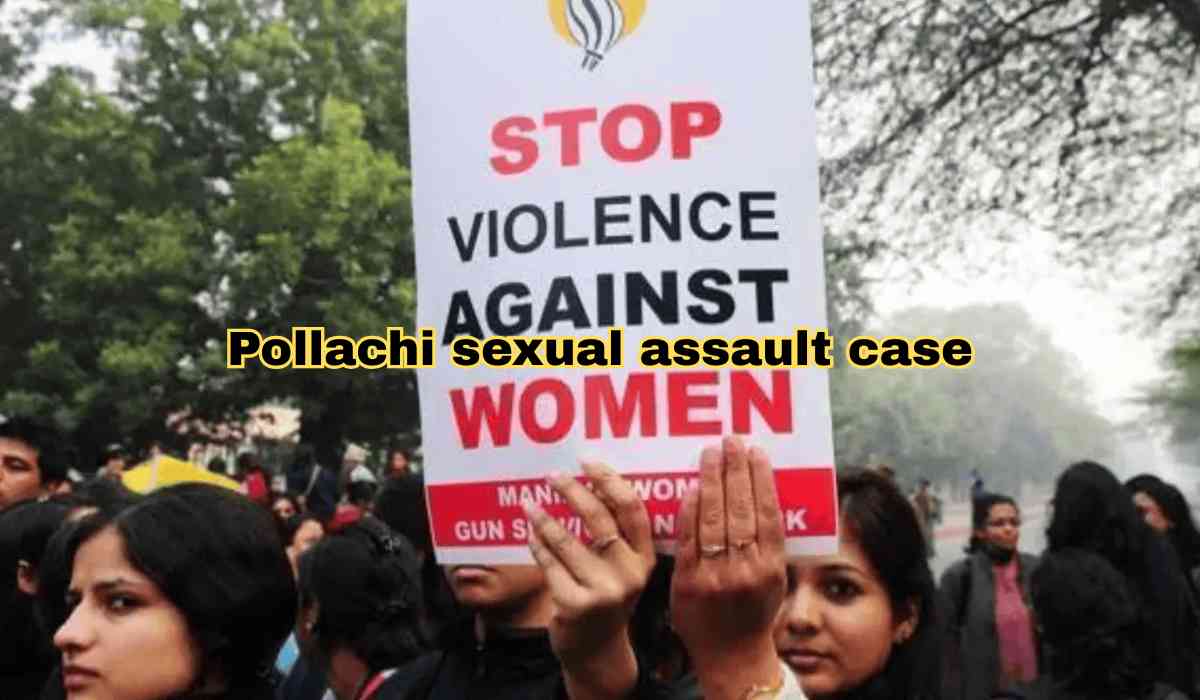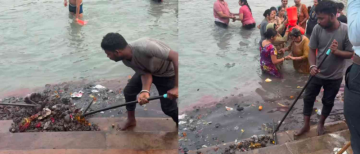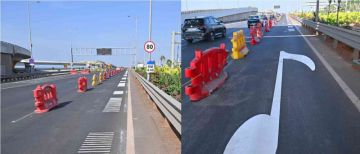In a judgment six years in the making, the Coimbatore Mahila Court delivered justice in one of the most gut-wrenching sexual assault cases in recent Indian memory—the Pollachi sexual assault and blackmail case. The court on Tuesday, convicted nine men and sentenced them to life imprisonment till death for the sexual exploitation and blackmail of at least eight women—a group that included young college students. These weren’t isolated crimes. They were part of a horrifying system of systemic abuse, exploitation, and trauma that played out in the quiet town of Pollachi in Tamil Nadu between 2016 and 2018.
The court also ordered the Tamil Nadu government to pay ₹85 lakh in compensation to the eight survivors. Yet, no amount of money can heal what was stolen—dignity, safety, and a future free from fear.
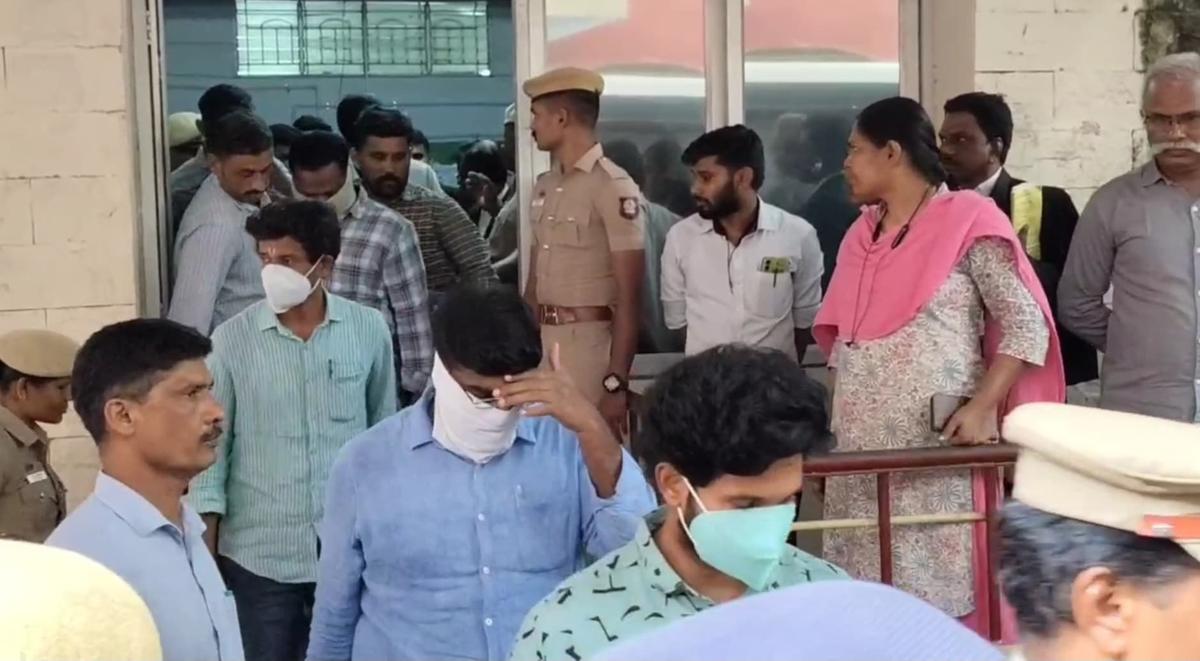
A Sinister Pattern of Exploitation
The crimes began to surface in February 2019, when a 19-year-old college student mustered the courage to file a police complaint. Her case became the tipping point for what would unfold as a dark saga of coercion, rape, blackmail, and silence.
She alleged that she had been lured into a car by an acquaintance, N. Sabarirajan, also known as Riswanth, on the pretext of an urgent conversation. With him was K. Thirunavukkarasu, another known face. Once inside the vehicle, two more men—M. Sathish and T. Vasanthkumar—joined. What happened next was horrifying: the men allegedly disrobed and sexually assaulted her, recorded the assault, and stole her gold chain. Then came the threats—to release the video if she didn’t give in to their further demands for sex and money.
This, as it turns out, wasn’t the first time.
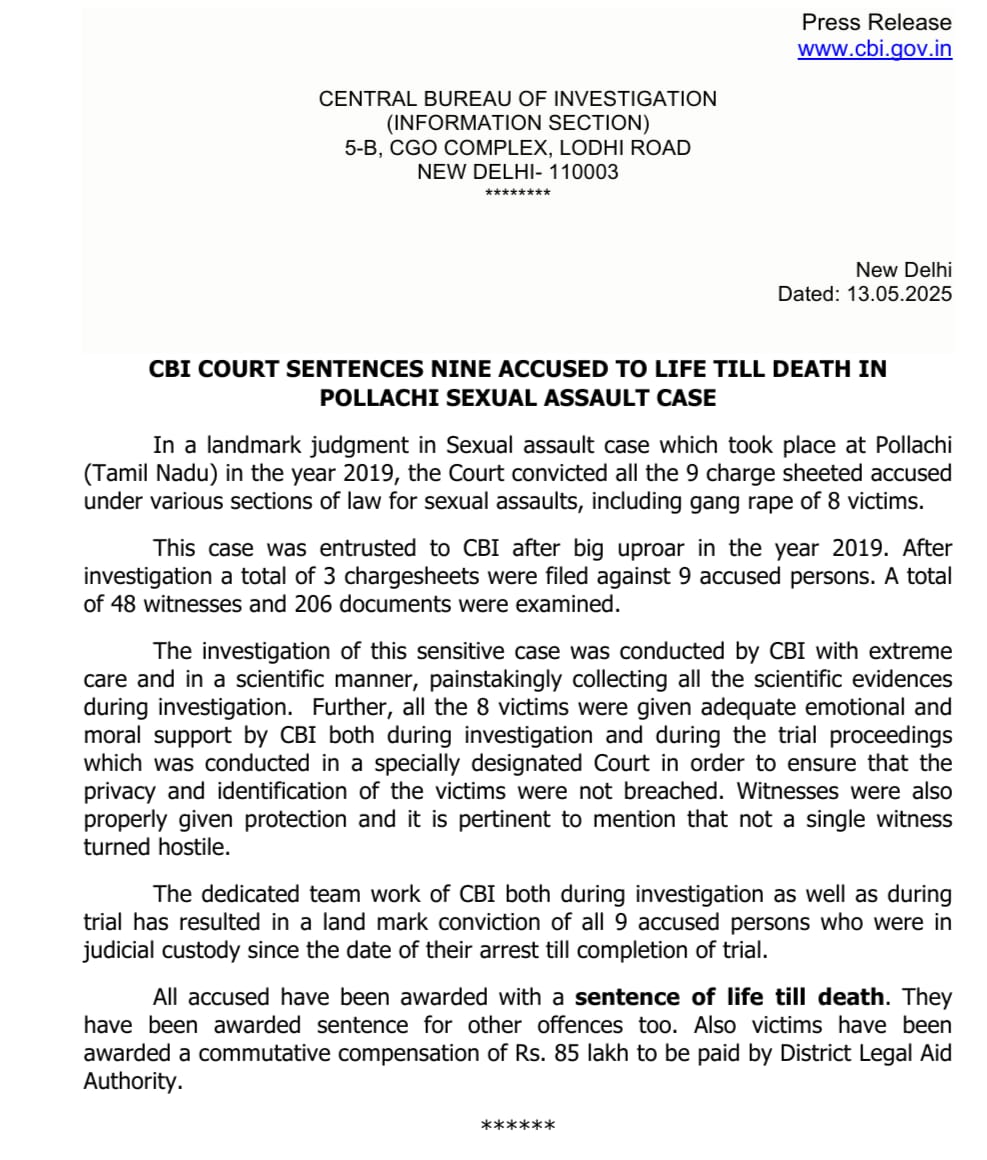
A Cache of Horror: The Digital Trail
What investigators found on the accused’s phones and laptops shattered any illusions that this was an isolated incident. Hundreds of videos, shot without consent, exposed the extent of the organized sexual abuse.
The gang had a method. Their modus operandi involved:
-
Identifying targets—mostly young women—through Facebook.
-
Gaining their trust through prolonged online or in-person interactions.
-
Luring them into private spaces where they were raped or coerced into sex.
-
Filming the acts—sometimes multiple men assaulting a woman—and using the videos to blackmail the victims for continued sexual favours, money, or valuables.
The CBI investigation, which took over the case from the Tamil Nadu Crime Branch-CID on April 25, 2019, confirmed this deeply disturbing pattern.
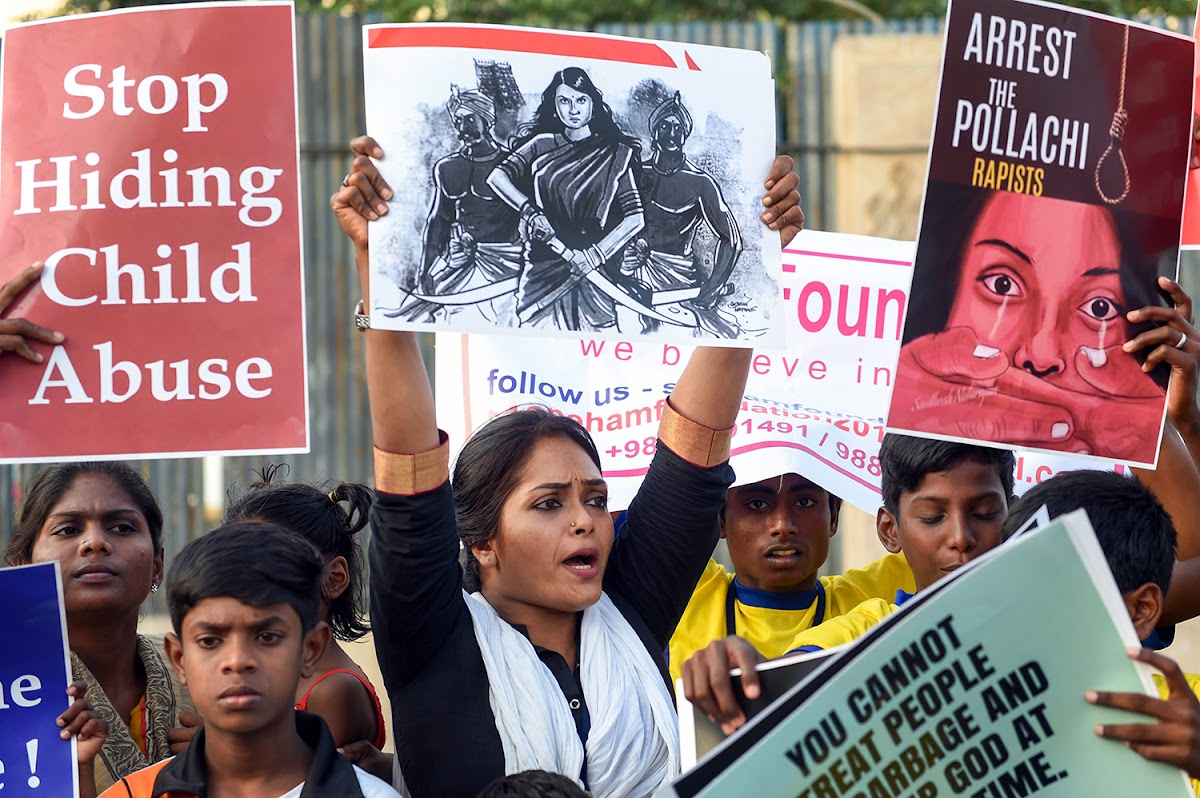
Who Were the Perpetrators?
Nine men were ultimately convicted. Each had a defined role, and together, they ran what can only be described as a rape extortion racket.
The convicts:
-
N. Sabarirajan alias Riswanth – A construction worker and the key recruiter.
-
K. Thirunavukkarasu – A financier, described as the “brains” of the operation.
-
M. Sathish – Ran a garment shop in Pollachi.
-
T. Vasanthakumar – A collection agent and part of the logistics.
-
R. Mani (aka Manivannan) – Businessman.
-
P. Babu
-
T. Haronimus Paul
-
K. Arulanantham – Former AIADMK Pollachi town student wing secretary.
-
M. Arunkumar
Some of them were well-educated—engineers, MBA graduates, businessmen. Others had direct political affiliations. Arulanantham’s ties with the then-ruling AIADMK sparked a political controversy after his arrest. He was expelled from the party only after public outrage.
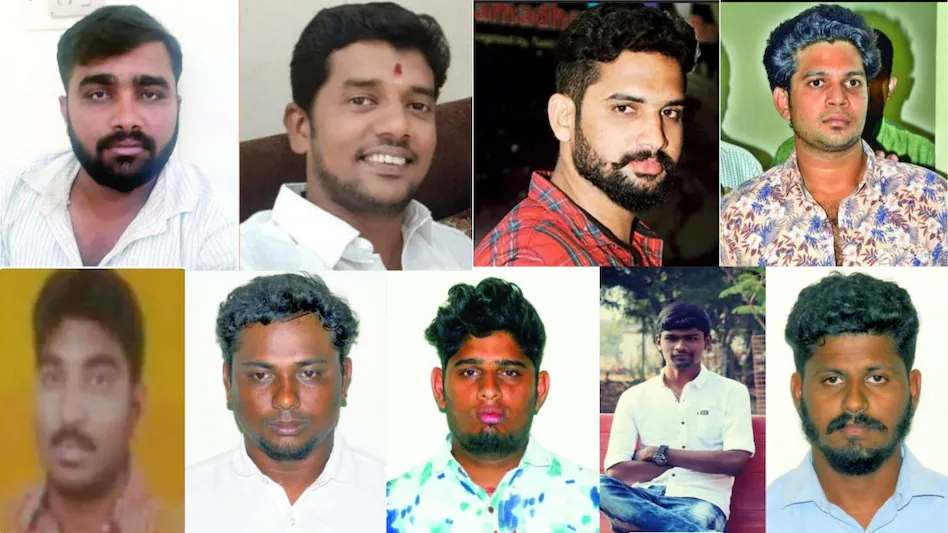
The Victims and Their Silenced Voices
Though reports suggest the gang may have targeted at least 60 women, only eight survivors came forward. Their silence wasn’t surprising. The stigma, shame, and fear Indian society inflicts on survivors of sexual violence is often more debilitating than the assault itself.
Despite these odds, over 200 documents and 400 pieces of electronic evidence—including forensically validated videos—were presented in court. The prosecution's witnesses testified under protection, their identities shielded by the Witness Protection Act.
Institutional Betrayals and Political Evasion
From the start, the case was marred by gross mishandling. The Coimbatore Superintendent of Police R. Pandiarajan publicly revealed the 19-year-old survivor’s name, a clear violation of Indian law and a betrayal that likely silenced others.
Allegations swirled that the AIADMK government tried to delay the registration of FIRs and suppress the scale of the crime. The DMK, then in opposition and now in power, along with actor-politician Kamal Haasan’s Makkal Needhi Maiam, leveraged the outrage during the 2021 Assembly elections, which eventually saw AIADMK ousted from power.
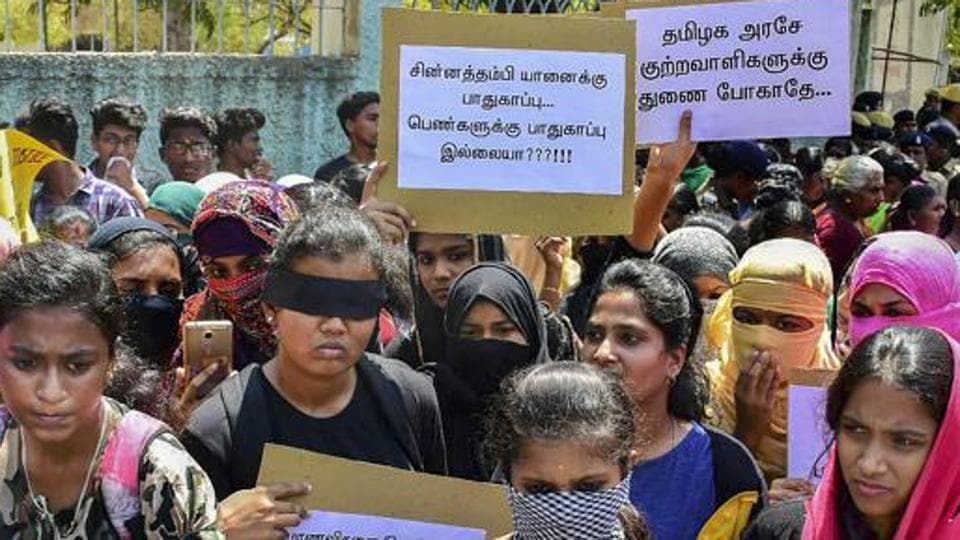
The Trial and Final Verdict
The court proceedings were closely guarded. Survivors testified behind one-way glass chambers, shielded from the public gaze. On May 7, 2024, under tight security, all nine accused were convicted on charges including:
-
Rape and gang rape
-
Repeated rape
-
Sexual harassment
-
Criminal conspiracy
-
Blackmail and extortion
The verdict not only condemned them to life imprisonment till death, but also mandated the ₹85 lakh compensation—a small measure of recognition for the survivors’ courage.
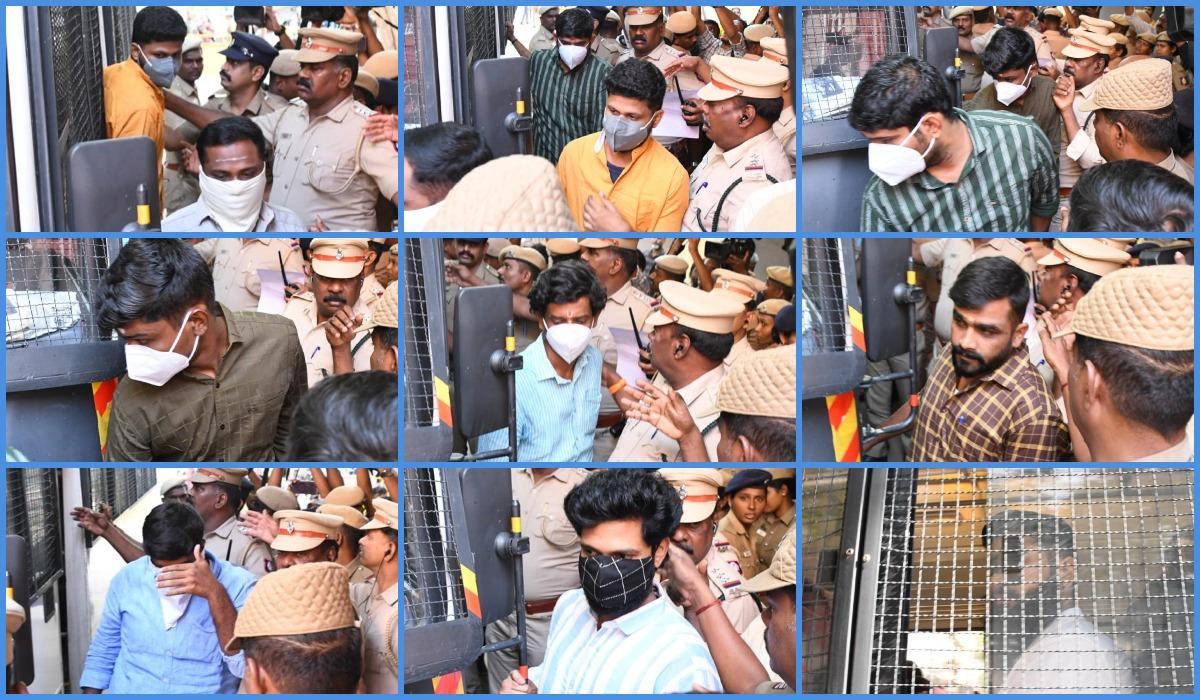
Beyond Pollachi: The National Epidemic
What happened in Pollachi is not an aberration. It is a chilling symptom of a larger, untreated disease. Since 2019, India has witnessed horrific cases of sexual violence, including:
-
2020 Hathras case – A Dalit woman gangraped and murdered in Uttar Pradesh.
-
2021 – A 15-year-old girl raped by multiple men over nine months.
-
2022 Hyderabad gangrape – A 17-year-old brutally assaulted.
These are only the documented cases. Thousands more remain unreported, festering in silence.
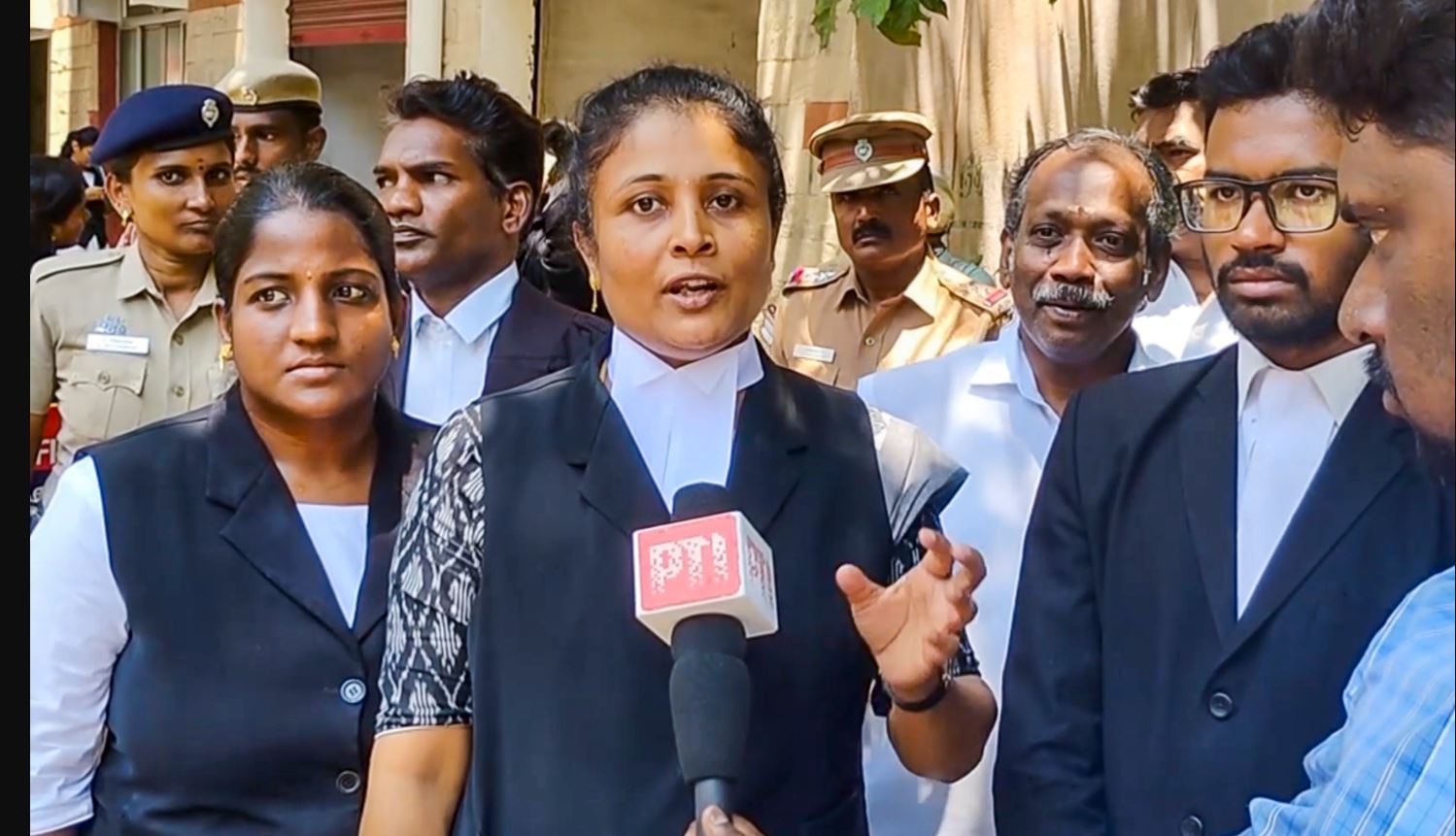
A Verdict, Not Closure
The Pollachi case is finally "settled" on paper. But in reality, there is no closure for the victims. As one women's rights activist put it:
“This verdict is a relief, but survivors need counselling, compensation, and government job assurances to rebuild their lives.”
The justice system has spoken. But the culture of misogyny, the institutional apathy, and the political cowardice that enabled these crimes still lingers. As Tamil Nadu heads into yet another election cycle, one wonders: Have we truly learned anything at all?
With inputs from agencies
Image Source: Multiple agencies
© Copyright 2025. All Rights Reserved Powered by Vygr Media.

